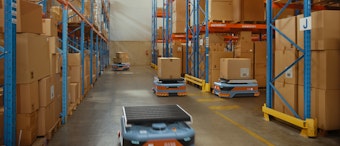
Robert Zeigenfuse, President and Chief Executive Officer of Avanceon LP
Most experienced engineers are used to working independently and have never had to participate much in teams, says Zeigenfuse, whose company employs about 250 engineers at offices in Exton, in Dubai, United Arab Emirates, and in Lahore, Pakistan.
“Part of our problem with our current engineers is that they’re not very good team players,” says Zeigenfuse. “They’re cowboys. Future engineers will need to work more like a well-trained army, in lieu of a collection of skilled misfits.” That’s why people skills are an important part of the training that Avanceon puts its engineers through, he observes.
To be successful, says Zeigenfuse, future automation engineers will need to move up what he calls the “service-value totem pole.” At the bottom is manual labor, and at the top of the totem pole are people who are very innovative and can produce value-added solutions, he says. In between are the medium-skilled jobs, such as detailed design and code development.
The bottom-level grunt work moved offshore long ago, while the middle level is moving offshore and is increasingly being done with tools that simplify the process. So American engineers will need to provide the value-added piece.
“In the future, what [engineering] clients are going to value most is what I’ll call domain knowledge, which is the knowledge of processes and how plants really operate,” Zeigenfuse observes. “Future engineers will need to be willing to be road warriors for a good part of their early careers in order to gain the domain knowledge that is valuable.”
Related Feature - Scoping the Next Generation
To read the feature article relating to this story, go towww.myenum.com/feature-4867
“Part of our problem with our current engineers is that they’re not very good team players,” says Zeigenfuse. “They’re cowboys. Future engineers will need to work more like a well-trained army, in lieu of a collection of skilled misfits.” That’s why people skills are an important part of the training that Avanceon puts its engineers through, he observes.
To be successful, says Zeigenfuse, future automation engineers will need to move up what he calls the “service-value totem pole.” At the bottom is manual labor, and at the top of the totem pole are people who are very innovative and can produce value-added solutions, he says. In between are the medium-skilled jobs, such as detailed design and code development.
The bottom-level grunt work moved offshore long ago, while the middle level is moving offshore and is increasingly being done with tools that simplify the process. So American engineers will need to provide the value-added piece.
“In the future, what [engineering] clients are going to value most is what I’ll call domain knowledge, which is the knowledge of processes and how plants really operate,” Zeigenfuse observes. “Future engineers will need to be willing to be road warriors for a good part of their early careers in order to gain the domain knowledge that is valuable.”
Related Feature - Scoping the Next Generation
To read the feature article relating to this story, go towww.myenum.com/feature-4867






















![Mps035 Sm 1200x628 D[2]](https://img.automationworld.com/files/base/pmmi/all/image/2021/03/MPS035_SM_1200x628_D_2_.604a4a336bc60.png?auto=format%2Ccompress&bg=fff&fill-color=fff&fit=fill&h=146&pad=5&q=70&w=340)









